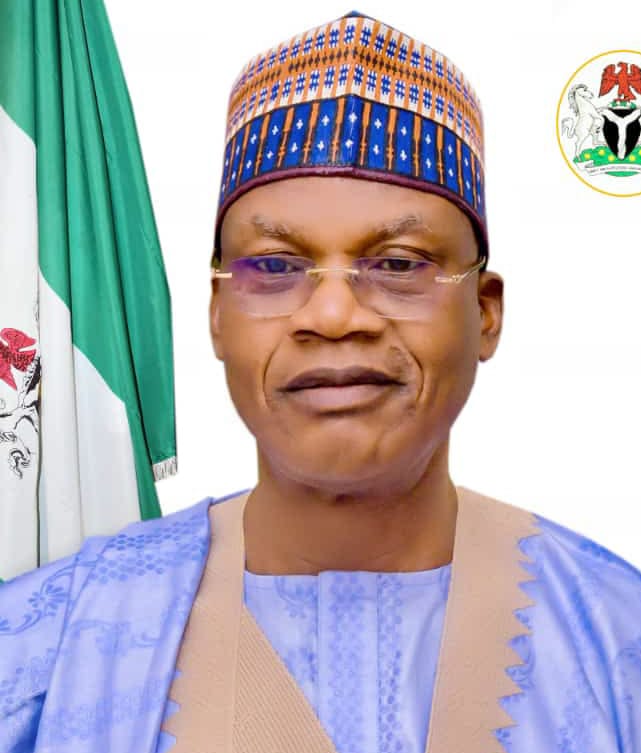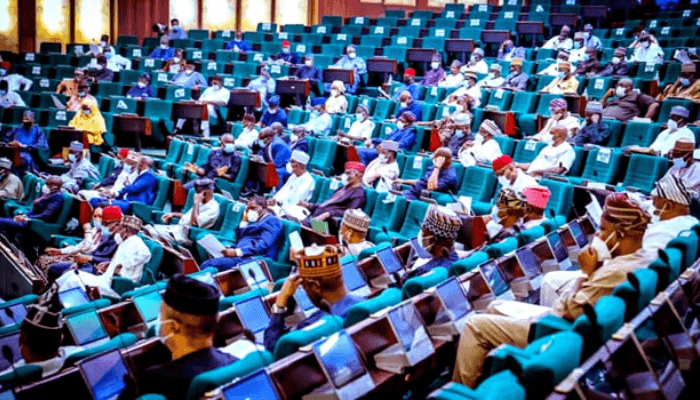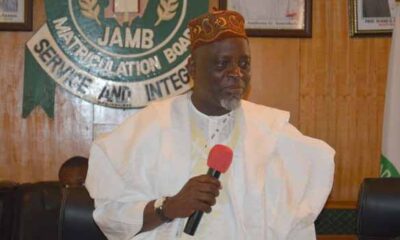News
Parents, students react as FG warns tertiary institutions against admitting candidates under 18 years

…As Education Minister commends JAMB
By Sodiq Adelakun
The recent directive issued by the Minister of Education, Prof. Tahir Mamman, regarding the admission of candidates under 18 years old to tertiary institutions, has sparked a wave of diverse responses from students and parents alike.
The directive, disclosed during a monitoring exercise of the ongoing 2024 Unified Tertiary Matriculation Examination (UTME) in Bwari, Federal Capital Territory, on Monday addresses concerns surrounding the pressure placed on underage students by some parents to gain admission into tertiary institutions.
According to the Minister, the establishment of an 18-year benchmark aligns with the 6-3-3-4 system of education and aims to curb such pressures and ensure that students enter higher education at an appropriate age.
While some stakeholders have applauded the directive as a necessary step to protect young students from undue academic pressure, others have criticised it, citing concerns about limiting opportunities for academically advanced individuals and questioning its alignment with broader education policies.
The debate surrounding this directive underscores the complexities inherent in educational policy-making and highlights the need for a balanced approach that considers both the welfare of students and the integrity of the education system.
“The minimum age of entry into the University is 18, but we have seen students who are 15, 16 years going in for the entrance examination.
“Parents should be encouraged not to push their wards too much. Mostly, it is the pressure of parents that is causing this.
“We are going to look at this development because the candidates are too young to understand what the whole university education is all about.
“This is the period when children migrate from controlled to uncontrolled environment; when they are in charge of their own affairs.
“But, if they are too young, they won’t be able to manage properly. I think that is part of what we are seeing in the Universities today,” he said.
On skill acquisition for those who will not be able to gain admissions into tertiary institutions, Mamman said the ministry is taking skills to pupils from primary school.
“In overall, it is 20 percent that can be admitted into the University, Polytechnic and Colleges of Education system.
“So, where will the 80 percent go? That is why the issue of skills acquisition is very important.
“Any student who is unable to proceed to tertiary institutions should be able to have a meaningful life after primary and secondary school’s education and the only solution to this is skill acquisition,” he said.
Corroborating the minister’s position on the benchmark of 18 years for admission to tertiary institutions, the JAMB spokesperson, Dr Fabian Benjamin said 18 years is in line with the 6-3-3-4 education system.
In an interview with NewsDirect, a parent, Mr Adeboye said that his daughter has demonstrated remarkable academic prowess by excelling in her West African Examination Council (WAEC) examinations.
Expressing his plea to reconsider the directive, Adeboye highlighted the unfair limitation it imposes on bright and capable students like his daughter.
According to him, “I’m deeply concerned about the government’s directive. My daughter has proven her academic prowess by excelling in her West African Examination Council (WAEC) at the age of 14. It’s disheartening to think that she might have to wait several years before pursuing her dreams at the tertiary level.
“I implore the authorities to reconsider this decision, as it unfairly limits the opportunities for bright and capable students like my daughter who are ready to take on higher education challenges at a younger age.”
Another parent, Mrs. Tanigbola expressed deep concern over the government’s directive restricting tertiary admission for students under 18. Her 13-year-old son, having excelled in his WAEC exams, faces the prospect of missing out on educational opportunities and potentially falling into negative influences without the structure of formal education.
Tanigbola fervently pleads with authorities to reconsider the decision for the sake of her son’s future and well-being.
She said, “I’m deeply troubled by the government’s directive. My son, at the age of 13, has already demonstrated his academic capabilities by passing his West African Examination Council (WAEC).
“Keeping him out of tertiary education not only deprives him of opportunities but also exposes him to the risk of falling into bad company while idle at home.
“Without the structure and guidance of formal education, he may be vulnerable to negative influences from peers who are not pursuing further studies. I fervently plead with the authorities to reconsider this decision, as it not only impacts my son’s future but also his safety and well-being.”
In a separate interview, a final year student in University of Ibadan, Mr Akingbola stated: “I find it distressing to witness underage students frolicking and displaying mesmerising attitude in school while I, at 22 years old, had to wait longer to gain admission to tertiary institutions, that’s why I took my time to face my studies.
“This directive should be implemented as it will help to maintain good educational gap and seriousness among students in higher institutions.”
Meanwhile, Tolulope shared his experience with one an underage female students of about 14 years in Joseph Ayo Babalola University (JABU) stating that there was an argument at a time in class, he said the underage teen in question almost slapped him because he ignored her for not answering him at a point in time.
He urged that the directive should be immediately implemented so that tertiary institutions in Nigeria can have serious minded students and produce job-ready graduates who are ripe enough to face reality in and outside the four walls of the classrooms.
Meanwhile, The Minister of State for Education, Dr Yusuf Sununu who was in the monitoring team applauded the conduct of the 2024 UTME, particularly, the introduction of online examinations as a way of checking malpractices.
He said the Computer Based Test (CBT) had reduced examination malpractices to the barest minimum.
Sununu commended the Board for setting a simple but high standard for the examination.
News
Tinubu targets increased gas production, unveils plants in Delta, Imo


President Bola Tinubu will commission three critical gas infrastructure projects undertaken by the Nigerian National Petroleum Company Limited and its partners.
They are the AHL Gas Processing Plant 2 in Delta State, the ANOH Gas Processing Plant, and the ANOH-OB3 CTMS Gas Pipeline Projects in Imo State. The gas projects have a combined estimated output of 1,400 million standard cubic feet per day.
Special Adviser to the President on Media and Publicity, Ajuri Ngelale, disclosed this in a statement he signed Friday titled ‘President Tinubu to commission critical gas infrastructure projects.’
“The projects support the federal government’s effort to grow value from the nation’s gas assets while eliminating gas flaring…and deepen domestic gas supply as a critical enabler for economic prosperity,” said Ngelale.
The AHL Gas Processing Plant 2 is an expansion to the Kwale Gas Processing Plant, which currently supplies about 130MMscf/d of gas to the domestic market.
The processing plant is designed to process 200MMscf/d of rich gas and deliver lean gas through the OB3 Gas Pipeline. However, the facility already injecting gas is scheduled to ramp up to 180mmscfd by the end of May.
Ngelale said this additional gas supply will “support further rapid industrialisation of Nigeria” and also “produce about 160,000 MTPA of Propane and 100,000 MTPA of Butane, which will reduce the dependency on LPG Imports.”
The AHL Gas Plant is being developed by AHL Limited, an incorporated Joint Venture owned by NNPC Limited and SEEPCO.
Meanwhile, the ANOH gas plant is an integrated 300MMscf/d capacity gas processing plant designed to process non-associated gas from the Assa North-Ohaji South field in Imo State.
The plant will produce dry gas, condensate, and LPG. The gas from the ANOH plant will significantly increase the domestic gas supply, leading to increased power generation and accelerated industrialisation.
The ANOH Gas Plant is being developed by ANOH Gas Processing Company, an incorporated Joint Venture owned by NNPC Limited and Seplat Energy Plc on a 50-50 basis.
With the facility mechanically completed in December 2023, the NNPC says it is finalising pre-commissioning activities.
Third is the ANOH-OB3 CTMS Gas Pipeline Project, which the Presidency said involves the engineering, procurement, and construction of 36”x23.3km ANOH-OB3 Project.
“The Transmission Gas Pipeline will evacuate dry gas from the Assa North-Ohaji South primary treatment facility to the OB3 Custody Transfer Metering Station for delivery into the OB3 pipeline system,” read the statement.
About 600MMscf/d is estimated to be available from two separate 2 x 300MMscf/d capacity gas processing production trains from AGPC & SPDC JV.
The 23.3km Anoh-OB3 PPL is scheduled for mechanical completion by May 15, 2024.
When commissioned, the projects will increase gas supply to the domestic market by approximately 500mmscf/d, creating a better investment climate and promoting balanced economic growth cumulatively, the Presidential Spokesman affirmed
News
House of Reps to review laws, practices restricting press freedom


The House of Representatives said on Friday that it would review the laws and practices restricting press freedom and the ability of the media to carry out its constitutional role in the country.
Rep. Akin Rotimi, Chairman, House Committee on Media and Public Affairs, said this while delivering a keynote address, to mark the 2024 World Press Freedom Day organised by the Konrad Adenauer Stiftung, Nigeria.
Rotimi said the legislature would prepare the ground for journalists to operate without any hindrance provided they adhere to the tenets of their profession.
“We will enhance good governance practices, transparency and
accountability through media chats, public hearings, town hall meetings, etc., amongst other scheduled legislative actions in Agenda 6,” he said.
The International Press Freedom Day, celebrated every May 3, is a day of reflection among media professionals and stakeholders on issues of press freedom and professional ethics.
Rotimi said that the 10th House of Representatives led by Speaker Tajudeen Abbas, had resolved to work with the media to ensure a successful running of the present government.
He said that the 1999 Constitution of the Federal Republic of Nigeria (as amended) conferred on the press a critical role as contained in Section 22 regarding obligations of the mass media.
“The role states that the press, radio, television and other agencies of the mass media shall at all times be free to uphold the fundamental objectives in this chapter and uphold the responsibility and accountability of the government to the people.
“Amongst many other challenges in the course of the discharge of this constitutional mandate, the press faces a disproportionate exposure to harm in the face of the widespread insecurity challenges in the country.
“There are also issues around the dearth of funding but I call on all stakeholders to continue with concerted efforts to address these challenges.
“There is no gainsaying that there are many miles to cover as far as media freedoms in our country is concerned but we have greatly improved from the days of military intervention in our polity (particularly, 1983 – 1998),” Rotimi added.
He urged the media to encourage introspection and self-regulation, and also look at the self-defeating ways that the press delegitimises their own struggle by not upholding ethics, and address them.
Mr Lukas Laible, Deputy Resident Representative, Konrad Adenauer Stiftung, Nigeria, said the press had become the enabler of Nigerian democracy.
“May 3 of every year is an important day for journalists as freedom of speech is the beacon of the practice.
“Without freedom of speech there won’t be freedom of press, and without freedom of the press, no society can be free.
“Journalists don’t just cover events, they are the people’s transmitter and they show capability in handling issues. They hold political leaders accountable and that is what makes democracy viable.
“Holding political leaders accountable enhances good governance. If the press fails to hold the government accountable, it will deviate from the people,” Laible said.
According to him, the press is so much trusted by the people and as such must make the people know the value of a free world.
Mrs Franca Aiyetan, Secretary, Nigerian Broadcasting Commission (NBC), who spoke during a panel session, urged journalists to always do their job in a way that would not consume the people.
Aiyetan, while speaking on the theme “Navigating the Intersection of Media Regulations, Press Freedom Advocacy and Ethical Journalism in the Face of Environmental Crises”, noted that NBC was established to have a formidable Nigerian media.
She said that NBC was not established as an attack dog for the government and as such would want the press to always work with it.
“If a detail about a truth will set two tribes against each other, then, there is something wrong with that truth.”
Another panelist, Mrs Mojirayo Ogunlana, the Executive Director, Digicivic Initiative, said journalists needed laws that should protect them while discharging their job.
“Threats to the lives of journalists should be declared as a state of emergency,” Ogunlana added.
She urged media practitioners to self-regulate themselves to prevent the government from exploiting any vacuum that could give it the opportunity to pounce on them.
News
Stop using repressive laws to intimidate journalists – SERAP, NGE tell FG


The Socio-Economic Rights and Accountability Project, SERAP, and Nigeria Guild of Editors, NGE, have called on Nigerian authorities at all levels of government to stop using repressive and anti-media laws to target, intimidate and harass journalists, critics and media houses.
The groups made the demand after an interactive session on ‘the state of press freedom in Nigeria’ held at the Radisson Blu Hotel in Ikeja.
In a joint statement, SERAP and NGE said that, “the government of President Bola Tinubu, the country’s 36 governors and FCT minister must now genuinely uphold press freedom, ensure access to information to all Nigerians, obey court judgments, and respect the rule of law”.
They expressed concerns about the escalating crackdown on the right to freedom of expression and media freedom and the flagrant disregard for the rule of law by authorities at all levels of government.
The groups note that the suppression of the press in recent times takes various forms ranging from extrajudicial to unlawful detentions, disappearances, malicious prosecutions and wrongful use of both legislation and law enforcement.
The statement read in part: “We would continue to speak truth to power and to hold authorities to account for their constitutional and international obligations including on freedom of expression and media freedom.
“Nigeria as a country has a long and unpleasant history of press gagging and clampdown on media freedom, which is evidence of extensive state censorship of media and in some cases, the utter control of state-owned media houses.
“This position has not changed considerably despite almost 25 years of unbroken democratic rule in the Fourth Republic.”
-
capital market2 years ago
Rt.briscoe, FBNH, Others halts negative performance of stock market
-
Finance3 months ago
Court orders Sen. Victor Umeh to repay N136m bank debt to AMCON
-



 Abuja Update2 months ago
Abuja Update2 months agoUNDP, FG partnership needed to achieve inclusion, equity- Minister
-
Abuja Update1 month ago
Banks drive stock market performance with N147bn gain
-



 Business2 weeks ago
Business2 weeks agoTingo Group unveils Tingo Electric, Tingo Cola drink at Lagos launch
-



 Health2 weeks ago
Health2 weeks agoCapacity training will reduce migration of health workers- NPHCDA
-
News4 months ago
Oil thieves sponsoring malicious media campaign against Navy – Spokesman
-



 Infotech1 month ago
Infotech1 month agoWorld Backup Day: NITDA urges Nigerians to ensure backup of data












